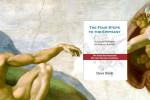Post-Modern Marketing

High Intensity Marketing by Idris Mootee
In the introduction to High Intensity Marketing by Idris Mootee, Jules Goddard gives his take on the evolution of marketing. He says “Post-Modern Marketing” encompasses on the complete value chain and is focused on the customer. For Goddard, winning at marketing requires “out-performing the competitor’s predictive models of customer response, essentially the skill of learning about customers faster than rivals and thus being in a better position to exploit first mover advantages.” He goes on to say that “the relative speed at which an organization learns is virtually the only remaining sustainable source of competitive advantage in a mature market.” His view of post-modern marketing is built on this concept of relentless organizational learning focused on the customer within the context of the overall value chain. By looking at the entire value chain, he brings the business model into focus.
In most markets today, the innovations that create the greatest wealth are based on the invention of new business models rather than the application of new technologies.
Business model innovation is a hot topic, championed by Alex Osterwalder, Anders Sundelin, and others. Looking at the components of a business model and the value network gives great insights into new ways of creating compelling offerings. Google is an often-cited case of insights into structural elements of the status quo. Business model innovation can be highly disruptive to incumbents and can be harder to copy given all the moving pieces involved (sales, marketing, product development, partnerships, and customer relationships). Amazon is a great examle of a company that evolves business models and uses technology in the service of disruptive offerings like associate program sales, cloud computing, and electronic books.
Here’s a video of Osterwalder describing the business model innovation process:
The invention of any new business models is ultimately grounded in a unique insight into the needs of customers
Putting customer insights at the center of business strategy has been a key theme of recent marketing models. This approach was popularized by Ideo and the concept of anthropological investigation into customer needs, problems, and behavior. The User Experience (UX) discipline is another fairly recent contribution to the idea that all good business and product design comes from a keen understanding of the end customer. In this video, Jeff Bezos outlines “everything I know”–and the first thing he knows is that “Amazon exists to obsess over customers.” He says “given a choice between obsessing over competitors and obsessing over customers, we’ll always choose obsessing over customers”:
Unique insights into customers are more likely to emerge from market experimentation than the analysis of market data
He notes that “almost all learning…is experiential..thus, the art of learning is mainly a question of creating experiences that lead to new insights.” This is a key tenet of Customer Development, which espouses the creation of “minimum viable products” and “pivoting” in response to learning about the customer.
Steve Blank, Eric Ries, and Patrick Vlaskovits are all key leaders of the Customer Development and Lean Startup movement. Steve Blank outlines the key points of Customer Development in this video:






